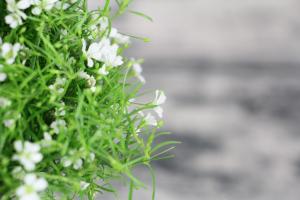How Much Water Should I Give My Lavender Plant
Lavender is a beautiful and fragrant plant that can add a touch of elegance to any garden. However, proper hydration is crucial to ensure that it stays healthy and thrives. Knowing how much water to give your lavender plant can be challenging, but the following tips will help you take care of it and ensure its longevity.
The Watering Needs of Lavender Plants
Lavender plants are drought-tolerant and prefer well-draining soil. They do not require frequent watering, and overwatering can be detrimental to their growth. The amount of water your lavender needs depends on various factors, such as its location, the soil type, and the climate of your area.
Generally, lavender plants require about 1-2 inches of water per week, including rainfall. It's best to water them deeply but infrequently. Water the plants at the base, avoiding the leaves and flowers as much as possible. This helps prevent fungal diseases that can develop if water remains on the foliage for extended periods.
Tips for Watering Your Lavender Plant
Here are some helpful tips to ensure that you're watering your lavender plant correctly:
Water the plant in the morning, so it has time to dry before the evening.
Avoid watering when the sun is at its strongest, as this can scorch the leaves and roots.
Check the soil moisture level before watering. Stick your finger 1-2 inches into the soil, and if it feels dry, it's time to water.
Avoid getting the plant too wet, as this can lead to root rot and other issues.
Consider using a drip irrigation system, which delivers water directly to the base of the plant and helps conserve water.
Signs of Overwatering and Underwatering Lavender Plants
Overwatering and underwatering can both have adverse effects on lavender plants. Here are some signs to look out for:
Overwatering
Yellowing leaves
Drooping stems
Foul odor coming from the soil
Mushy or rotted roots
Mold or fungus growth on the soil surface
Underwatering
Wilting leaves
Dry, brown leaves
Absent or slow growth
Fragrant flowers that fall off easily
Plants that become stressed or vulnerable to pests and diseases
In Conclusion
In conclusion, taking care of your lavender plant requires understanding its watering needs. While it's generally a drought-tolerant plant, it still requires proper hydration to thrive. The amount of water your lavender plant needs depends on factors like its location, soil type, and climate. By following the tips above, you can keep your lavender healthy and enjoy its beauty and fragrance for years to come.

 how many times do yo...
how many times do yo... how many planted tre...
how many planted tre... how many pine trees ...
how many pine trees ... how many pecan trees...
how many pecan trees... how many plants comp...
how many plants comp... how many plants can ...
how many plants can ... how many plants and ...
how many plants and ... how many pepper plan...
how many pepper plan...





























